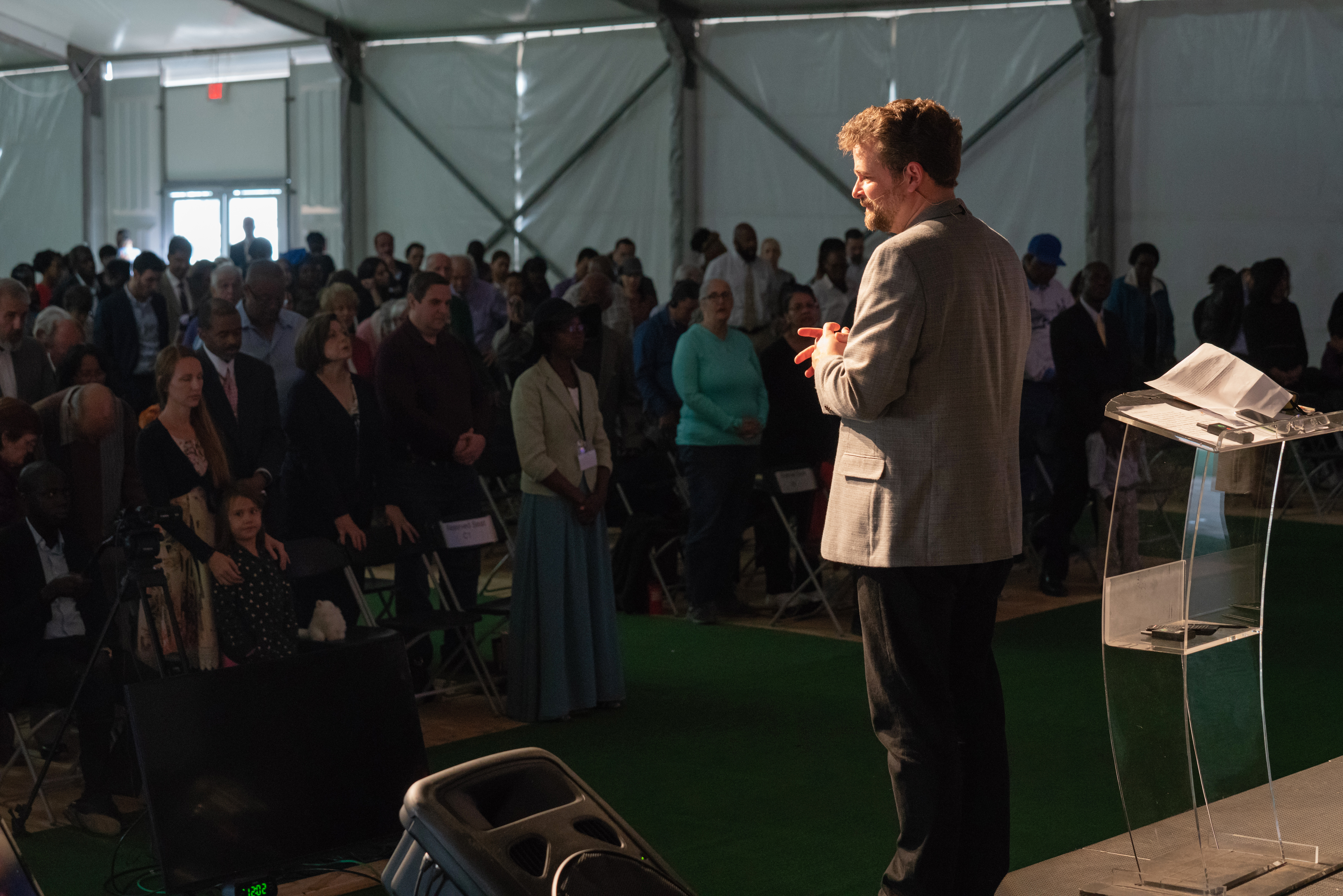
The Problem with Reason
I'll confess something right up front: I'm feeling a little wordy today. Maybe it's because there's an extra day this month; perhaps that's making me feel entitled to a few extra words. My wife assures me that people do not like long, wordy blog posts. So if you want to put this aside and come back another time, I'll understand. :)
Still here? Good. I spent the morning thinking about something.
If late 17th and early 18th century Europe had a god other than the Judeo-Christian God, it was the goddess of reason. The French Revolution literally enthroned her on the heels of her as the nation rejected the temporal authority of the Catholic church; across the nation, churches were converted into “Temples of Reason.” Legend has it that during the infamous Festival of Reason in 1793, a prostitute was dressed up as the goddess of reason in order to sing indecent songs from the altar at Notre Dame. Not only was the abuse of the medieval church rejected; Christianity itself was tossed aside.
A number of events during the French Revolution proved to be so vile that many students of the historical school of prophetic interpretation have identified the happenings in France with the temporary death of two witnesses (the Old and New Testaments) predicted in the eleventh chapter of Revelation. France became, figuratively, "Sodom and Egypt."
In many ways, while certainly singing the praises of enlightenment philosophers, the French Revolution was anything but rational or reasonable. What began as a push for liberty ended with tyranny, terror and incredible bloodshed. The idea that sparked the revolution was the notion that human reason could provide a superior substitute to governments run by princes and prelates. In many regards, they were right: while the French Republic itself eventually reverted to older forms, on the other side of the Atlantic, another republic was born that survives to this day as the world’s only superpower: the United States of America. Human reason did manage to create a form of government vastly superior to those of medieval Europe.
(It would be a mistake, however, to assume that the American republic was born of purely secular ideals; on the contrary, it is relatively easy to prove that the notions of “life, liberty and the pursuit of happiness” were as much (or more!) a product of the Protestant Reformation as they were the children of secular philosophers. But that would be another topic for another day.)
Fast forward roughly two hundred twenty years, to the present day. Today, philosophers refer to the “post-modern” era, a time in which many people find themselves utterly skeptical of the idea that human reason will give us any kind of earthly paradise. The industrial and scientific revolutions, they will rightly point out, gave rise to the 20th century: by far the bloodiest century in human history. All the reason of the brightest human beings combined could not solve our biggest problems, and now many people find themselves utterly uncertain of just about anything and everything.
Many no longer believe in absolute truth. Rather, we speak of truthiness or personal narratives that individuals might believe to be true. But real, external measures of objective truth? No. There is no real meaning to life, they say–and there is no answer to our biggest questions. The enlightenment philosophers gave rise to the nihilists, and now their thoughts have trickled into the mainstream.
A little Bible study might have solved it.
Reason isn't the problem. Contrary to the assertions of some anti-rational Christians, reason is highly prized in scripture. “Come now, and let us reason together,” God says in Isaiah 1:18. “I applied my heart to know,” the wise man says in Ecclesiates 7:25, “to search and seek out wisdom and the reason of things.”
Your brain is a God-given gift, and He expects you to use it.
But there is a limit. Job admits (in Job 9:14) that when human minds are pitted against the mind of God, we don’t even know where to start. There are some things that you and I will simply never understand just by thinking about it.
That's our first problem: our minds aren't really big enough to grasp everything. The second problem? Try as we might, human beings might teach themselves to think rationally, but we will never truly behave in a purely rational fashion.
Case in point: a few weeks ago, I was listening to a call-in advice show on the radio. A forty-eight year old man phoned and told the heart-breaking story of his unemployment. He hadn’t worked in more than a year; he was down to his last two thousand dollars. He was getting desperate in his search for work.
The night before, he confessed, he had consumed fourteen bottles of beer . . . alone. Given the fact that he was running out of money, and he desperately needed his wits about him in order to plan for the future, it was a highly irrational act. To be sure, it was understandable: he was trying to medicate himself out of his misery. But rational? No.
And so goes it in a world where people are born hard-wired for sin. Rationality (and history) teach us that invading another country or starting a war almost always end badly; people still do it. Rationality tells us that the odds in a casino are stacked in favor of the house; people still show up and bet the farm. Rationality tells us that having an affair will destroy your family and ruin your marriage; it still happens.
Here's the problem: the impulses of a sinful heart often override our best attempts at being reasonable. Try as you might to be completely objective, you can’t. “The heart,” says Jeremiah, “is deceitful above all things, and desperately wicked. Who can know it?” (Jeremiah 17:9)
That’s why believers choose to compare their God-given talents for reason against the information presented in divine revelation. It’s a way of assessing your conclusions against a Mind much more objective than your own. “For as the heavens are higher than the earth,” God says, “so are My ways higher than your ways, and My thoughts than your thoughts.” (Isaiah 55:9)
Don’t forsake reason, by any means. Where Christians thinkers used to be recognized as intellectual giants, far too many modern Christians have abdicated the halls of reason altogether. People like Milton, Bunyan and Edwards were known for their colossal intellects, but they had another secret to their greatness: they were Christians who understood the limits of human reason.
They knew when it was time to bow the knee to the superior wisdom of God.
Okay, that's it. I'm done being excessively wordy now. Enjoy your extra day.



